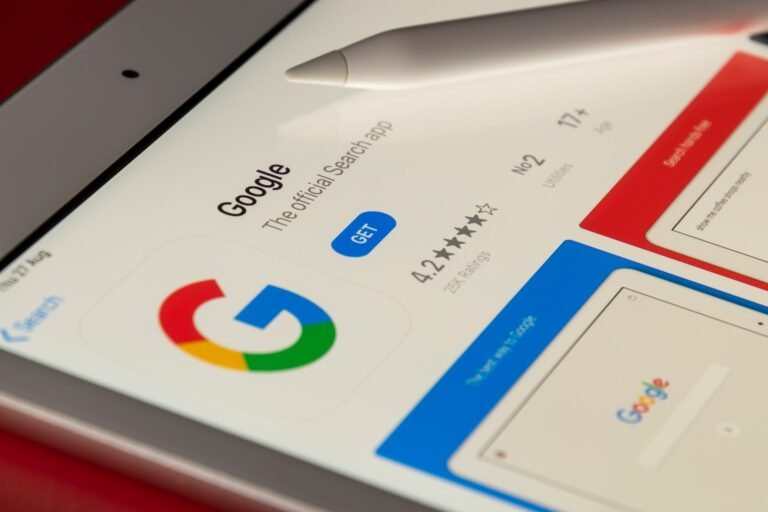Lead generation is the lifeblood of B2B marketing, but inefficiently chasing leads day in and day out can get old very quickly. Every business, especially in a crowded small business environment, is on the hunt for high quality leads. Instead of always searching for leads, how about flipping the script? With the right strategies and tactics, you can entice prospects to come to you. Let’s discuss some of the most effective B2B marketing strategies that are great for small businesses and how they can improve your lead acquisition process.
The Role of Lead Generation in B2B Marketing
Lead generation, especially in B2B, is not just important, it is a determinant of how fast a business can grow. When businesses connect with qualified leads, they open the door to new clients, more revenue, and long-term partnerships. However, small and midsize businesses often find themselves spread thin, unsure where to start or which strategies will yield the best results. That’s where a truly effective strategic marketing ally comes in.
A seasoned digital marketing agency can create and implement various lead generation strategies designed to bring prospects to your door. The secret to success is not only employing an agency but understanding on a very core level the specific tactics that allow leads to seek you out rather than you chasing them.
Start by Knowing Your Target Audience
Successful lead generation is about thoroughly understanding your target audience. A shotgun approach won’t do. Rather, your approach should be specific and strategic, aimed at the audience that is inclined to want to hear from you.
Develop Buyer Personas
Start by outlining buyer personas. These are semi-fictional personas who embody the characteristics of your ideal customers. For example, what industry are they in, what type of company do they work for, and what is their role? Are they a decision maker or an influencer? How do they typically gather information and what channels do they use to do so? What pain points do they have and what are their frustrations in trying to resolve those pain points? The more you understand your target audience the greater your chances of creating messages specifically tailored to their issues. More on that later.
Segment Your Market
Not all leads are the same, even if they fall under your target audience umbrella. That’s why segmenting your market is so important. Divide your audience based on criteria like company size, industry, or even specific pain points. This segmentation allows you to personalize your marketing messages and efforts, making each interaction more relevant and impactful.
Content Marketing Is Still King
High-quality content is at the heart of attracting potential customers looking for specific solutions and it’s more important today than ever before.
Create Content That Matters
With a content-rich marketing approach, creating great content isn’t enough. Your content must be consistent, regularly posted within the context, and speaks to your audience’s particular pain points while offering relevant solutions. Small businesses must be consistent with content creation, as it allows potential buyers to view the company as a reliable and insightful provider. When your content genuinely helps or educates, potential leads start to see your business as a trusted resource. Over time, this builds credibility and keeps your company top of mind.
Optimize for SEO
Great content is useless if it’s unreachable. By incorporating the right keywords into your text, in addition to the right tags and metadata, you increase the chance your target audience will find your content in search results. Optimizing SEO is more than just keywords and metadata. It’s also about content structure, length, links and other critical components that every business should incorporate to ensure their content is SEO-friendly.
Social Media Marketing: Your New Best Friend
Social media isn’t just for cat videos and selfies—it’s a powerful tool for B2B marketing.
Establish a Strong Presence
LinkedIn, Facebook, X (formerly Twitter), and Instagram offer small businesses a way to connect with their target audience and drive leads. One of the best tools for B2B marketing is LinkedIn, as it contains virtually every influencer or decision maker that can drive sales to your business. But keep in mind, Facebook and Instagram also offer opportunities to connect to your audience and, if done correctly, can be a more affordable alternative to LinkedIn.
By establishing an active presence on these platforms, sharing insights, and joining relevant conversations, you position yourself as an industry leader and create more organic opportunities for engagement.
Share Engaging Content
Sharing content that grabs attention and drives engagement will help differentiate your company from your competitors. Whether you’re posting a new blog article or sharing a customer success story, make sure your content adds value and helps resolve audience pain points. This will not only increase your reach but also encourage prospects to follow, engage, and eventually convert.
Email Marketing: Personalization Matters
Email marketing is one of the most effective tools for B2B lead generation. The key for effectiveness with this approach is individualization.
Build a Quality Email List
A well-built email list is as good as gold, providing endless benefits. You can strategically use lead magnets in the form of eBooks, infographics, research studies, free reports, or other specially designed content to encourage your target audience to subscribe to your email list. Prospects willingly trade their contact details if you offer content that is of value and, again, helps to resolve one or more of their pain points. In addition, you’re not just looking to add names to an email list. Your objective is to nurture those contacts so they become more familiar with your products or service and view your company as a valuable resource they can count on.
Effective email marketing tools, such as Mailchimp, Constant Contact and Zoho Campaigns, are affordable yet capable platforms that allow small businesses to get started with their email marketing strategy.
Tailor Your Communication
When communicating with your audience, you must note that one size does not fit all. Segment your contact list based on things such as industry, size, specific pain points, where they are in the sales funnel and more. Based on that segmentation, your communication to each segment should be tailored to what’s important to them. Personalized email communication leads to higher open rates, greater engagement, and more prospects being moved through the sales funnel.
Pay-per-click (PPC): Generate Immediate Visibility
PPC advertising is an effective strategy for businesses to gain immediate visibility while also implementing a long term organic SEO approach.
Implement Targeted Ads
Through PPC, you can generate advertisements to be displayed when a potential lead types an inquiry. Using Google Ads or LinkedIn Ads allows to target by demographic, job title, and interest – showing your message to your intended audience at the right time. Facebook and Instagram ads also allow for very detailed targeting and can sometimes cost as little as a few cents per click.
Monitor and Adjust
It’s important to manage your PPC campaigns closely, as it’s not a set it and forget it tool. You’ll want to evaluate their effectiveness daily and weekly while making necessary adjustments along the way. This ensures you’re getting the best return on your investment while also keeping a close eye on your budget.
A Unified Marketing Strategy
Lead generation isn’t about relying on a magic solution or a single silver bullet. Rather, it’s about integrating several approaches simultaneously over time. By combining strong audience insights, smart content marketing, social media engagement, email personalization, and PPC advertising, you can create an effective marketing system that brings leads to your door without you having to chase them.
Ready to stop chasing and start attracting leads? Contact Content Revolution Labs, and let’s craft a strategy that delivers real results.




